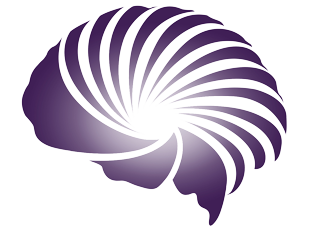OCD Obsessive-compulsive disorder
OCD Obsessive-compulsive disorder affects all groups in society, and some are more prone than others. Leaders and Executives take on responsibilities that others do not. Honouring those responsibilities requires the existence or adoption of certain mental behaviours, for example, high levels of conscientiousness that can, in some cases, lead to OCD, Obsessive-compulsive disorder.
If the line between conscientiousness and OCD – Obsessive-compulsive disorder. is crossed a leaders or executive can experience dramatic declines in their performance. Their career and livelihood is then at risk.
How do you know if you are suffering from OCD?
Brief answer
Are obsessive thoughts or compulsive behaviours interfering with your life?
If you answered Yes, you may be experiencing OCD. You may wish to read more before deciding whether to seek help.
How do you know if you are suffering from OCD?
More detailed answer
From time to time we all double check that the house is locked or that we turned off the garden hose, or that we washed our hands before eating (usually because we weren’t paying attention first time).
When someone moves beyond double-checking caused by attention lapses, and that turns into ritualised behaviours (mental or physical) over which they feel they have no control, and, which they feel compelled to undertake, then OCD is the likely problem.
What is OCD?
OCD is an anxiety-based challenge. Most compulsive behaviours have behind them an entirely reasonable concern that any good leader or executive would attend to. For OCD sufferers the reasonable concern is taken to, what the OCD sufferer recognises as, an unreasonable level.
Obsessive and compulsive thoughts are essential for successful human living. Most people are compulsive about cleaning their teeth at least twice a day, or washing their hands after using the toilet, or cleaning vegetables before eating. It is when teeth are being cleaned every 30 minutes, or hands washed every time something is touched, or vegetables are cleaned 20 times before eating that reasonable and wise compulsions become life impairments.
Treatments
Each person is different, as such, it is unlikely that any one off-the-shelf treatment for OCD can work for everyone. A skilled psychological therapist will find the way (usually several ways) to best help you overcome OCD.
Behind Every Compulsion is a Fear or Anxiety
Almost all OCD started out with a reasonable concern to do what was wise, right and effective. In OCD protecting against something real has turned into something harmful:
- Fear of negative consequences turned into compulsive hoarding.
- Fear of pathogens turned into compulsive hand-washing.
- Fear of danger or of regret turned into compulsive checking
- Fear of … turned into compulsive …
A Quick, Rough and Ready, OCD Questionnaire
Here are some quick and simple test questions to determine if you are experiencing OCD:
Thoughts Associated with OCD
Do you:
1. Frequently think about things that may happen?
2. Spend a lot of time anticipating things going wrong?
3. Spot things being wrong, out of order or in the wrong place?
4. Have intrusive thoughts and images?
5. Find it difficult or impossible to control your thoughts?
6. Experience thoughts of negative consequences if you don’t do something?
Feelings Associated with OCD
Do you have:
7. A fear of causing harm to yourself?
8. A fear of causing harm to others?
9. A fear of things going wrong?
10. Strong feelings of discomfort if things are not as they should be?
11. Feelings of being compelled to do something?
12. Feelings of being out of control?
Physical Symptoms Associated with OCD
Do you have:
14. Nervous tics?
15. Elevated heart rate or palpitations?
16. Chest tightness?
17. Pains of an unknown cause?
18. Dizziness?
19. Nausea?
20. Bowl movement extremes?
21. Breathing problems?
22. Localised sweating (when it is not hot)?
23. Generalised sweating (when it is not hot)?
24. Stomach churning?
25. Hot or cold flushes?
26. Muscle tremors?
27. Overwhelming anxiety?
28. Panic attacks?
29. Colds and flues more often than previously?
Behaviours Associated with OCD
Have you experienced:
30. Repeating behaviours that you know you have already completed, immediately or shortly after you have completed them?
31. Repeatedly engaging in rituals?
32. Arranging or re-arranging things only to have them exactly as they were before you started?
33. Collecting items that others would consider have no or little value?
34. Others expressing concern about your repeated behaviours?
The more questions to which you answered Yes, the more likely you are to be experiencing OCD. Most people can overcome OCD with the right help.
What to do about OCD?
It is always wise to rule out any medical cause before engaging in any kind of therapy. You may wish to consult your GP.
Treatments
Each person is different, as such, it is unlikely that any one off-the-shelf treatment for OCD can work for everyone. A skilled psychotherapist will find the way (usually several ways) to best help you overcome OCD.
You will appreciate that time is best used serving clients. When you call, please expect to leave a message on voicemail.
